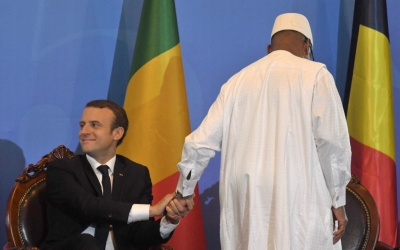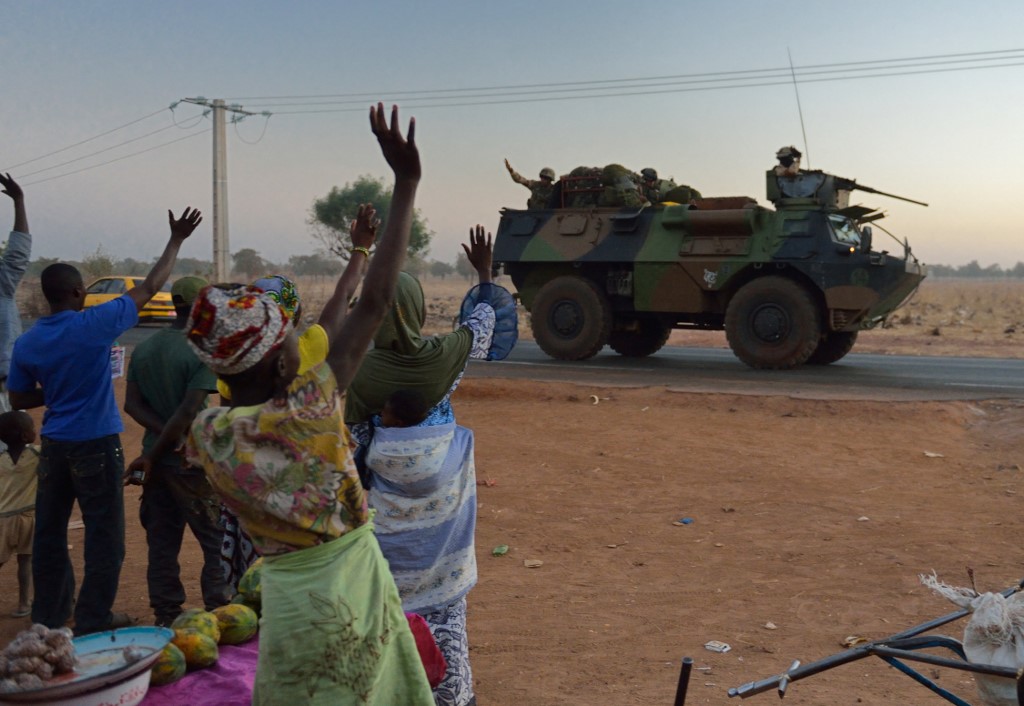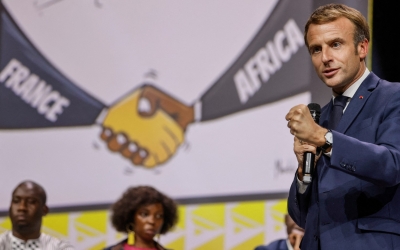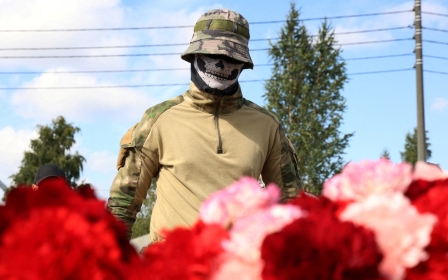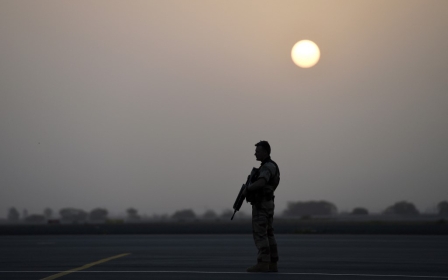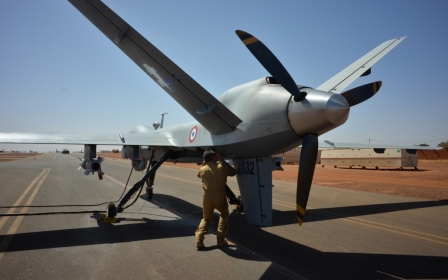The foreign actors lining up to replace France in the Sahel
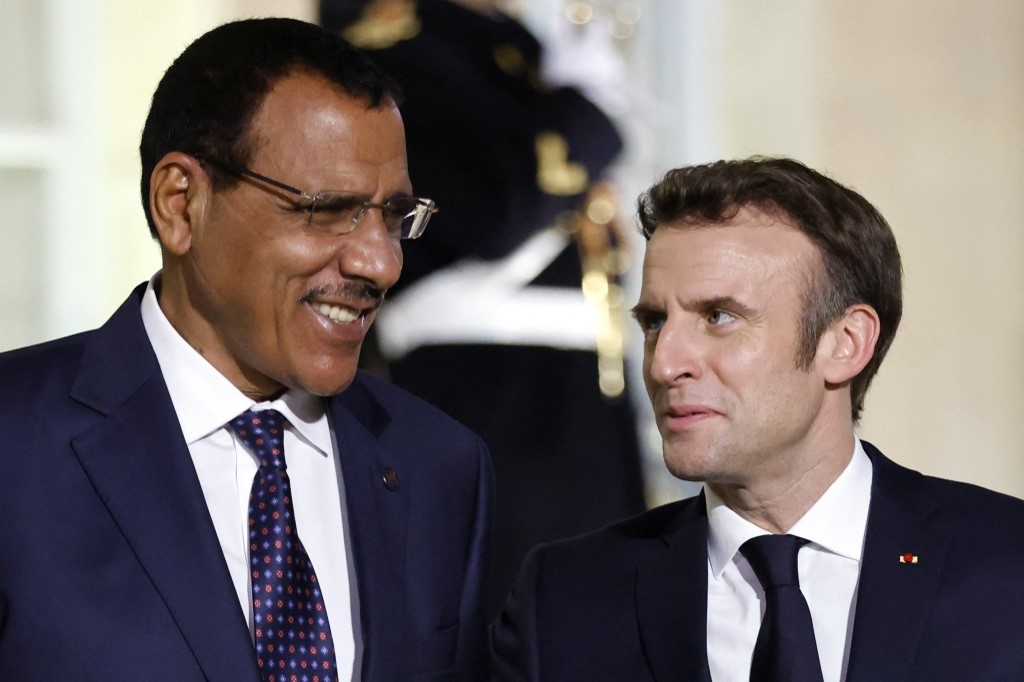
On 23 August, the leader of the Russian Wagner militia, Yevgeny Prigozhin, died when his plane crashed en route from Moscow to Saint Petersburg.
The death of the oligarch has raised a number of questions about the future of the Wagner group, particularly its activities in Africa.
Prigozhin's death came at a particularly turbulent time for the African continent, notably with the recent coup d'etat in Niger, which followed others in Sahelian states in recent years, notably in Mali and Burkina Faso.
The Wagner group is increasingly being seen as the solid military arm of the Kremlin in the Sahel and central Africa, part of a strategy that indirectly increases the presence and power of Russia on the continent.
At the same time, traditional non-African actors in the region, particularly France, seem to be gradually losing their foothold within these countries, which is key for regional security.
Stay informed with MEE's newsletters
Sign up to get the latest alerts, insights and analysis, starting with Turkey Unpacked
What is really happening? Is this a lasting and irreversible geopolitical transformation of the balance of power in Africa? Is this the end of France's African policy or just a shift towards a more multipolar order? Could this be an opportunity for African countries and institutions to take the lead in the management of security issues, particularly in West and Sahelian Africa?
Security powers in Africa
Beyond the disappearance of Prigozhin - which in no way signifies the end of the Wagner group, given its usefulness to the Kremlin - a look at the new balance of power of external actors in Africa is an interesting first step.
Since at least 2013 and the French intervention in Mali, called Operation Serval, France has played an important role as a security power in Africa.
Serval was broadly accepted and recognised as legitimate, both by the international community and by African actors themselves, starting with the Malian state.
On the other hand, Operation Barkhane, the expansion of the Mali operation into four other Sahel countries - Burkina Faso, Niger, Mauritania and Chad (together called the G5 Sahel) - tested the solidity and coherence of French policy over the eight years of its existence.
Ending in 2022, Barkhane did not achieve the intended results - strengthening the security of the Sahel and its key states through military combat against armed Islamist groups.
On the contrary, military withdrawal from Mali, Burkina Faso - and perhaps now Niger - has led to the loss of French influence in countries where historically it had been strong.
The French media and politicians tend to attribute the reasons for this withdrawal as being solely down to the activities of the Wager group in the region. But there are other factors in play.
The first concerns the orientation of France's African policy over the last 20 years. The opening up of Africa to globalisation has led to a new balance of power for many countries on the continent, and in particular for the countries of French-speaking Africa.
The arrival of new political and economic players such as China, India, Turkey and Russia has enabled the development of real competition with France, which clearly no longer has the means to achieve its ambitions on the continent.
Major political crises
The second factor, a direct consequence of the first, concerns the redefinition of France's African policy itself. This policy has tended, under the pressure of competition from foreign powers in French-speaking Africa, to rely on France's military leverage.
Such a commitment required tangible and observable French military successes over time. However, these generally did not meet the expectations and logistical means invested by Paris. The Sahelian armed groups were slowed down for a time, particularly in 2013, but they eventually re-established themselves in areas where the French military presence was less pronounced.
More seriously, Mali, Burkina Faso and now Niger have called into question France's presence in their countries, in particular by demanding the withdrawal of French soldiers.
This is an unprecedented situation for a France that, since decolonisation, had become thoroughly accustomed to unquestioned cooperation in defence matters.
This is an unprecedented situation for a France that, since decolonisation, had become thoroughly accustomed to unquestioned cooperation in defence matters
The third factor in this geopolitical crisis is to be found in the domestic, internal evolution of several Sahelian countries.
Mali, Burkina Faso and Niger are today experiencing major political crises, with characteristics that are distinct but similar: rejection of the former ruling elites considered too "pro-French"; persistent social and economic problems despite the large programmes of development aid (the European Union alone committed more than ¢4bn in aid to the G5 Sahel countries between 2014 and 2020); and increased regional insecurity (particularly in the three-border region between Mali, Burkina Faso and Niger), calling into question the ability of these states to protect their citizens.
This situation in the region is not new, having persisted for many years. However, the recent rapid succession of coups raises questions about the fragility of the political apparatuses of the states concerned, as well as the capability of their military elites to seize power while relying, politically, on the rejection of France's presence and traditional decision-makers.
In this respect, the services of the Wagner group - most notably in terms of propaganda and the information war - may have been useful in certain cases, even if we must remain cautious about the extent of this influence in the political destabilisation of those states.
Russian opportunism in Africa?
These factors make it possible to partly understand the current failure of France's African policy - a failure which is not attributable to a particular government, but rather to an underlying, structural, long-term dynamic which has affected its direction since the beginning of the 21st century.
This effective situation of forced withdrawal - although we do not necessarily have to believe it is definitive - leaves room for other actors who wish to fill the power vacuum left by France’s departure.
The United States could benefit from this new situation by reviewing its presence and cooperation in the Sahel since it does not, unlike Paris, attract criticism for its presence, which remains fairly discreet (but essential, particularly in terms of logistical resources and military intelligence).
Russia has clearly rushed to fill the void left by the French military in order to gain greater influence in the G5 Sahel, especially on the political and military levels.
Russia's strengths here lie in its ability to exploit indirect means of influence and combat that western powers, and in particular France, had gradually abandoned because they were considered too sulphurous: the use of mercenaries (as at the height of Françafrique); the control of information among French-speaking African countries; and the deployment of propaganda to legitimise or delegitimise political actors.
The 'infowar', in particular, has been a weapon particularly well deployed by Wagner in order to generate anti-western and anti-French opinion in the Sahel, West Africa and Central Africa
The “infowar”, in particular, has been a weapon particularly well deployed by Wagner in order to generate anti-western and anti-French opinion within several countries from the Sahel, West Africa and Central Africa.
But this Russian presence, through the Wagner group but also other military companies controlled by Moscow - such as Sewa Security Services and Moran Security Group - remains for the moment precarious and is not comparable to more than half a century of French policy in Africa.
Russia has until now deployed no large-scale military operations on the continent, and it does not have an infrastructure and a presence comparable to that of France.
Its policy of cooperation and development on the continent remains undefined in the long term, while its penetration of African political elites is not yet structural as was the case with Françafrique.
Instead, this presence makes it possible to wage an indirect war against western interests on the continent by weakening the sources of power of traditional external actors.
As such, France is particularly affected and it will take many years to re-establish influence on the continent, on a political, military, cultural and economic level.
African response to security challenges
But beyond the geopolitical issues, it is the African actors who find themselves in an unprecedented situation for the future of their security.
The need for an African response to African security challenges is urgent.
Historically, this did not happen because of the initial focus of the Organisation of African Unity (OAU), created in 1963. The OAU had no legal powers to intervene politically or militarily in the affairs of newly decolonised states.
This problem was addressed in the early 2000s with organisational reform. From 2002, the constitutive act of the African Union included the recognition of a “right of intervention” in the affairs of member states in the event of war crimes, genocide, etc.
It also adopted an African Peace and Security Architecture (APSA) integrating, among other things, a security council as well as an African Standby Force (ASF).
However, political issues have meant the latter has never been operational.
Thus the extension of reinforced security cooperation with external actors such as France or the UN was favoured whenever there was a need for a rapid intervention force.
In the Sahel, this dependence on external actors has been particularly visible. In 2013, France intervened in Mali at the request of a state unable to repel on its own the advance of the coalition forces of the Azawad Liberation Movement and various armed groups.
The creation of the G5 Sahel in 2014 suggested that the Sahelian states were finally taking charge of their own regional security, but little actually changed in practice as the organisation was still fully dependent on the French military system associated with Operation Barkhane.
More broadly, the question of financing African collective security structures remains problematic. For example, the G5 Sahel budget depends largely on external aid, particularly from the European Union.
The recent coup in Niger seemed to show a new reaction from countries in the region, particularly within the framework of the Economic Community of West African States (ECOWAS).
Last August, the regional organisation announced that it intended to mobilise an intervention force to reinstate Niger's deposed President Mohamed Bazoum.
This intervention has so far not happened and to do so would need a significant human, logistical and financial contribution from ECOWAS states.
Absolute urgency
The current situation in the Sahel seems particularly worrying, but it nevertheless offers the opportunity for a new positioning of African security institutions, both at a regional and continental level.
The geopolitical vacuum is growing. It will need a rapid response and considerable investments of all sorts to ensure that the African states can fulfil their sovereign functions and defend and protect their interests.
It also affects the distribution of power to external actors.
France must revisit its African policy by diversifying its means of action - and not simply falling back on military tools alone - by implementing more egalitarian and symmetrical relationships with its partners on the continent.
Without this, there is no doubt that other actors, such as Russia, will take advantage of this crisis to gain influence and power on the continent.
African states, and in particular those in the Sahel, must understand the absolute urgency of collectively taking charge of their own security.
Otherwise, they run the risk of subcontracting their problems once again to foreign actors, public or private, who have different interests and objectives in mind.
The opinions expressed in this article are those of the author and do not necessarily reflect the editorial policies of Middle East Eye.
Middle East Eye delivers independent and unrivalled coverage and analysis of the Middle East, North Africa and beyond. To learn more about republishing this content and the associated fees, please fill out this form. More about MEE can be found here.



